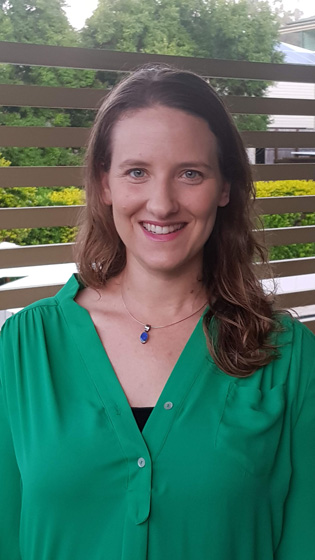
A Queensland scientist who has led marine biodiversity conservation and sustainable coastal development projects across the world has been announced as the Australian nominee for the 2020 international ASPIRE Prize.
Dr Amelia Wenger, a marine conservationist from the University of Queensland, is one of 12 international nominees in the running for the prestigious US$25,000 Asia–Pacific region science prize, which is expected to be announced in August.
The prize recognises young scientists who have demonstrated a commitment to both excellence in scientific research while working closely with scientists from other APEC member economies. This year’s theme, chosen by 2020 ASPIRE Prize host nation Malaysia, is ‘Biodiversity for a Prosperous Economy’.
Dr Wenger collaborates with communities and researchers to produce knowledge and tools for conserving marine ecosystems. The research produces tangible outcomes for both biodiversity and economies.
A research project she led in Western Australia from 2014 to 2018 resulted in the world’s first evidence-based management guidelines for protecting coastal fisheries from dredging activities, which have been adopted by the Western Australian government.
Dr Wenger said she felt incredibly honoured to have her research recognised.
“I’ve had amazing mentors and collaborators who have inspired me to make my research as meaningful as possible for conservation efforts,” Dr Wenger said.
The Australian Government and the Australian Academy of Science ran a national competition to select three Australian finalists for the ASPIRE Prize.
The top three Australian ranked applicants from this competition receive a prize of AUS$2000 each. The highest-ranked applicant then becomes the Australian nominee for the ASPIRE Prize.
Dr Carla Eisemberg from Charles Darwin University and Dr Jeremy Simmonds from the University of Queensland were also recognised as Australian finalists for this year’s prize.
Dr Eisemberg researches sustainable harvest practices of wildlife to ensure that Indigenous communities in Northern Australia and tropical Asia continue to have a traditional food supply, but also that the endangered turtles and other species that they hunt are protected. Her results may be used in Indigenous enterprises such as sustainable turtle farming as well as health policy.
The second finalist, Dr Simmonds co-led the development of a sustainability developemnt framework for businesses to compensate for the losses to biodiversity that their activities cause. It has already had significant impact in the policy space, with several countries and jurisdictions using this framework to reconcile their development and biodiversity goals.
Professor Elaine Sadler AO FAA, Foreign Secretary of the Australian Academy of Science wished Dr Wenger the best of luck representing Australia in the next stage of the ASPIRE Prize.
“It’s exciting to see the high-calibre research of these three finalists, who early in their careers, are already making an impact for biodiversity conservation, whilst also enriching communities and economies,” Professor Sadler said.
Associate Professor Madhu Bhaskaran from RMIT University was the last Australian to be awarded the ASPIRE Prize in 2018. She is only the second Australian to win the prize since the award’s inception in 2011.
The APEC economies are: Australia, Brunei Darussalam, Canada, Chile, China, Hong Kong-China, Indonesia, Japan, Republic of Korea, Malaysia, Mexico, New Zealand, Papua New Guinea, Peru, Philippines, Russia, Singapore, Chinese Taipei, Thailand, United States, and Vietnam.
Further information about the ASPIRE Prize can be found at the APEC website.
© 2026 Australian Academy of Science